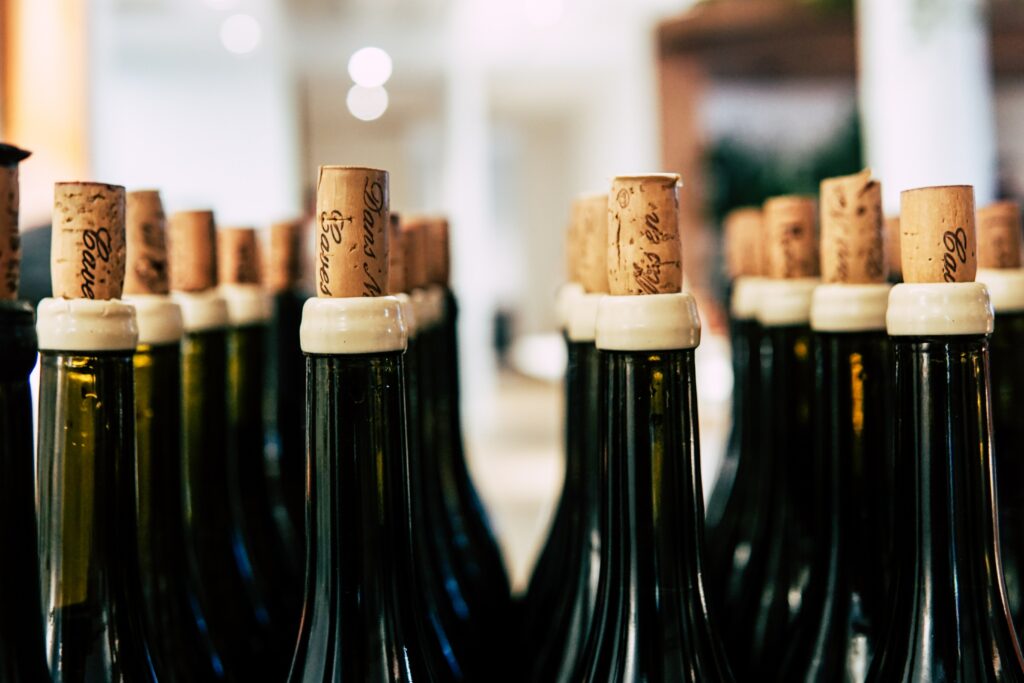Wine, like art, antiques and cars, have long and detailed histories, tiered values and vintages. These factors make them all so worth investing in, and fine wines are among the most sought after investments on the market. If you want to know how to start a wine collection, we share our top tips on how to collect wine for investment and what you need to know to ensure that investment is sound.
WHY DO SOME WINES SELL FOR HIGH PRICES?
The world of high-end collectables can seem outrageous to those who do not partake in it. Champagne was once salvaged from a 170-year-old shipwreck and sold at auction for over $78,000 each. Because the wine had been stored on its side, in the dark and under pressure, the champagne was reportedly still drinkable! This champagne was a rare find and had a fascinating back story; therefore, it could command a high price.
According to CNBC, “a 73-year-old bottle of French Burgundy became the most expensive bottle of wine ever sold at auction, fetching $558,000. The bottle of 1945 Romanee-Conti sold at Sotheby’s for more than 17 times its original estimate of $32,000. Another bottle of the same wine and vintage went for $496,000 moments later at Saturday’s auction. The bottles shattered the previous record for the most expensive bottle of wine ever sold — a 3-liter (known as “large format”) bottle of 1945 Mouton-Rothschild that sold at Sotheby’s in 2007 for $310,000.”
If you are interested in collecting wine for investment, here are a few things you need to consider.
- Your Investment is More than Just the Purchase
When one invests in wine, it is prudent to consider everything involved in purchasing fine wines. There are far more costs than just the price of the bottle. Wine storage, security, documentation and insurance are all things to consider when investing in wine, and these elements themselves can considerably increase costs. Hence, why they are worth looking into before you make your first fine wine purchase.
- Keep accurate wine records.
If you are planning to store your fine wine investments within your own property, it is vital to ensure not only they are stored correctly and that you have sufficient security, but also important is knowing what and how much you have at any one time. Keeping a detailed log and even a journal is a good idea, especially if you are ever inclined to enjoy the odd bottle here and there. If you’re wondering where to store your fine wine collection if it’s purely an investment, then that would be a bonded warehouse.
- When it comes to fine wine, storage is everything!
We touched on appropriate wine storage above but let’s go into more detail about how best to store your fine wine collection at home. Vintage and rare fine wines need to be handled with the utmost care. Fine wines prefer temperatures to be around 11-14˚c (52-57°F) and should never go over 24˚c (75°F) because they then begin to oxidise and that can cause the wine to lose colour and flavour, and in extreme cases, turn the wine into vinegar! Rather than just popping your wine in the cellar, consider a climate-controlled wine cellar room that can be placed in any available space in your house.
- The purchase value is of significant importance.
It is doubtful that your average bottle of wine from the supermarket will ever be a sought after vintage. Unless, of course, Sir Richard Branson took it to space on his next Virgin Galactic space flight, that would probably make it rare, collectable and worth an investment. What’s rare and sought after makes something more valuable, making it more desirable in the future. That’s a wise wine investment.
- Start small and follow the smart steps.
When you collect wine for investment, it is prudent to do your homework to ensure that it is indeed what you are getting, a wine worth investing in and not something that will be money down the drain! Wine collecting isn’t a quick return, but it can be incredibly lucrative. You don’t have to start with anything too expensive, but it certainly needs to be a fine wine of note and value. It’s often best to speak to an expert in ideal wine collecting to help guide you in making smart investments and ones that will provide worthwhile returns.
Extra tips for wine investment.
Keep all the documentation safe. Treat it as sacred as the wine!
If your wine is in your care, handle it with the respect it deserves. Wine, especially fine wine likes to rest and does not take kindly to being handled too often. A newly purchased vintage wine would need to rest for up to 6 weeks before being enjoyed.
Regularly have your wine collection appraised because the collectors’ markets can be volatile, so it’s a smart move to keep a record of your investment value. It’s also good for insurance purposes!

